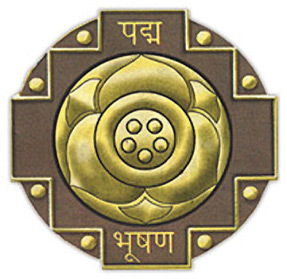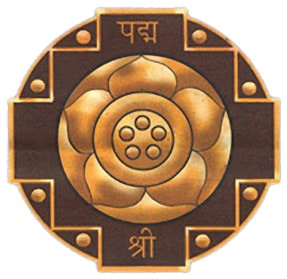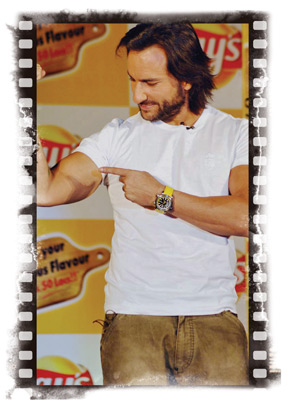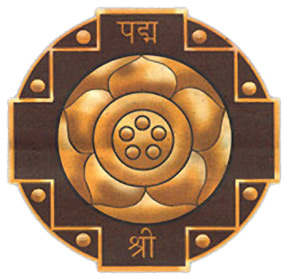|
On the eve of every Republic Day, which commemorates its recognition as
a sovereign democracy and marks the commencement of its Constitution, India —
or, more precisely, the Indian Government — announces the annual list of its
best and brightest. And every year, as far as one can recall for at least the
past three decades, the announcement of the Padma awards triggers an
undignified barrage of acrimonious debate and controversy.
 |
|
This year the controversy was “globalized” because one of the names that raised eyebrows is of New York-based Sant Singh Chatwal. |
Had the disagreements stemmed solely from disgruntled rivals, they
could be attributed to that great human frailty called jealousy. Or maybe, if
the dissatisfaction targeted a harmless — if vacuous — ritual, we might be
forgiven for defending the practice as one of the necessary accoutrements of
fledgling nationhood.
But it’s neither. The criticisms have gone beyond the realm of
individual awardees and their qualifications and are now gnawing at the very
root. There is a growing feeling that the awards, devalued over the years of
appalling selections, are in fact corrupting the nation’s public life. Former
Delhi High Court Chief Justice Rajinder Sachar excused himself from accepting
the award in order “to keep public life free from any pollution.” (see sidebar)
The activist-judge was referring obliquely to something that’s become
sickeningly routine. When moneybags camp in New Delhi weeks before the
announcement to wine and dine and line the pockets of the powers-that-be, and
when the list includes names with family connections rather than genuine
contributions to public welfare, you begin to see the wisdom of an old saying:
What you can’t mend, you better end.
This year’s list has its usual share of shady choices. This time the
controversy was “globalized” because one of the names that raised eyebrows is
of New York-based Sant Singh Chatwal. Speaking long-distance to a reporter,
allegedly from his yacht in the Caribbean where he’d flown in his private jet,
the NRI hotelier, who hobnobs with the Clintons and their ilk, countered
allegations of wrong-doing with: “If there was the slightest whiff of fraud, do
you think presidents and ministers would walk into my home?” Perhaps Chatwal
might want to rewind the Godfather DVD to Michael Corleone’s
memorable line on the dubious ethics of modern politicians — “Who’s being
naïve, Kay?” — when his girlfriend tells him presidents and senators, unlike
his father (an underworld don), don’t have men killed.
Saif Ali Khan’s case is a more benign symptom of the same kind of
political affliction. The Bollywood actor, whose innately boorish personality
and trademark scowl made him the ideal choice for his best role and only decent
performance to date in Omkara, has little to commend himself for
a Padma Shri other than a genetic link with a royal family that’s known to cozy
up to the Gandhis. Khan defended his inclusion by pointing out that the list
also contained names of people who haven’t invented the atomic bomb. In the
process, he unwittingly exposed an unspoken truth: he was in the good company
of other nincompoops.
 |
How else does one describe Hashmatullah Khan, a small-time exporter of
shawls from Kashmir, who made it on last year’s list as a “master weaver and
craftsman” and persons like Mekhala Jha who should have, in all fairness,
claimed the “Padma Shrimati” instead of the Padma Shri because her decoration
had everything to do with her marital status as the wife of the then Lt.
Governor of Delhi, L.K.Jha.
Apart from nincompoops, Saif Ali Khan — who, like his father Tiger
Pataudi, was charged for poaching the endangered black buck — jostles in the
award list with people who have had run-ins with the law. Ghulam Mohammed Mir
is a notable example. A surrendered Kashmiri militant against whom cases of
extortion and attempted murder are pending, Mir has been honored this year with
a Padma Shri for public service.
Worse, awardees are known to deploy the awards as shields against
due-process investigations. When Dr. K. Khalilullah faced charges of financial
fraud as director of Delhi’s G.B. Pant Hospital, the authorities refused to
initiate disciplinary action on the grounds that the good doctor happened to be
“a nationally recognized specialist who has been honored with a Padma Shri and
a Padma Bhushan.”
 |
Personal whims and political calculations of the country’s presidents
and prime ministers are no less potent motivators of selection for such awards.
Dr. Rajendra Prasad, India’s first president, ensured that his favorite nurse
was given a Padma Shri. Rajiv Gandhi ensured one for his Doon School principal
and gave M.G. Ramachandran a posthumous Bharat Ratna to woo the Tamil Nadu
electorate for an important assembly election, notwithstanding the fact that
MGR was cited for massive tax evasion. V.P. Singh’s Bharat Ratna for the late
Dr. B.R. Ambedkar betrayed an anxiety to bolster his narrow pro-Dalit political
agenda. President Giani Zail Singh, Prime Ministers Atal Behari Vajpayee and
Dr. Manmohan Singh all sought to honor their eye, knee and heart surgeons
respectively — with Vajpayee, an amateur poet, additionally bestowing a Padma
Shri on a minor singer who vocalized his poetry in an act of unabashed
hagiography. But Indira Gandhi took the cake: she decorated herself with a
Bharat Ratna.
The latest Chatwal imbroglio too has a creepy political subtext.
Insiders reveal that his nomination is part of a turf war between the Manmohan
Singh administration and the Congress Party. While the latter’s spokespersons
repeatedly emphasized that the Padma awards should never be associated with
tainted names — thus hinting at Chatwal’s financial shenanigans involving
Indian banks — the Home Ministry issued an official press statement describing
Chatwal as “a tireless advocate of India’s interest in USA” and justifying the
Padma Bhushan for his efforts “to strengthen bilateral relationships between
India and the United States.”
Long-standing public outrage over such revelations prompted several
lawsuits. The most high-profile of them was heard in the country’s Supreme
Court, which upheld the decorations on arguably thin grounds.
On the misuse of the decorations, the Court noted with cryptic
impatience that “it is axiomatic that the misuse of a concept does not change
its inherent nature.” What it failed to note was the equally applicable axiom
that the long-term systemic abuse vitiates it beyond repair and thus renders it
unsuitable for the very purpose for which it was instituted. This failure is
particularly significant in the light of the Court’s own observation that the
criticism of misuse was leveled by no less a person than the freedom fighter
Acharya Kripalani who, after chairing the Sub-Committee on Fundamental Rights,
which abolished the colonial concept of “titles” like Rao Bahadur and Khan
Bahadur for pliant natives, sought to abolish the Padma awards as well by
introducing a Bill in Parliament. Kripalani’s failure was a victory for the
vested interests in government.
To be fair, the Supreme Court did attempt an overhaul of sorts. But its
guidelines have been breached with impunity. It mandated, for instance, that
the awards shall not be used with the names of the awardees and ruled that such
use shall render the awardee liable to be stripped of the award. In reality,
the award names are used rampantly as prefixes even in public announcements.
And at least one worthy, who
 |
This year the controversy was “globalized”
because one of the names that raised eyebrows is of New York-based Sant Singh Chatwal |
narrowly missed the boat, is known to have printed
“considered for Padma Shri” on his business card!
Lamenting the absence of clear and transparent criteria for selection,
the Court also mandated that the number of awardees in all categories be
restricted to 50 or less. The number routinely exceeds 100: there are 130
awardees this year.
Leave aside, for a moment, the courts and the constitution. Let us ask
ourselves some simple questions: Is the government really equipped to judge
works of art, science and literature? Does a private-sector industrialist with
no record of public service deserve a governmental award of any kind? Doesn’t
such an award compromise the independence and integrity of citizens who are beholden
to criticize and protest against ill-advised government policies and actions?
And finally, do the truly great need any official endorsement of their
greatness? Remember, a certain Mohandas Karamchand Gandhi still remains the
world’s beloved Mahatma six decades after his death, despite being denied the
Nobel Peace Prize during his lifetime.
|
…And some said no
A roster of those who refused the Padma Award:
MAULANA ABUL KALAM AZAD: As Education
Minister, he laughed off Pandit Nehru’s recommendation with the classic line —
“How can the Government give itself an award?”
ROMILA THAPAR: The eminent historian has
consistently voiced her protest against all state awards.
RAJINDER SACHAR: The former Chief Justice of the
Delhi High Court and now a human rights activist believes the state’s duty is
to govern, not to award its citizens. He is also wary of the polluting effect
of such awards on public life.
K. SUBRAHMANYAM: As strategic analyst and
journalist, he thought it was “inappropriate” to accept any state award as this
would “compromise my independence vis-à-vis the state.”
P. SAINATH: Another journalist, whose
pioneering work documents the severity of India’s rural poverty, believes it is
wrong for journalists to accept state awards.
SUKUMAR AZHIKODE: The Malayalam author dubbed the
Padma Awards “unconstitutional.”
USTAD VILAYAT KHAN: The sitar
virtuoso thought the committee which selected him was “incompetent” to judge
his artistry.
SITARA DEVI: Fumed that it was “an insult, not
an honor” to be given a Padma award that ranked lower than the one conferred on
a comparatively junior artiste like tabla player Zakir Hussain.
And finally, there is veteran Bollywood comedian David Abraham. Even though Abraham accepted the
award, the roving-eye bachelor joked, “I’ll take Padma, you can keep her Shri.”
|
|







You must be logged in to post a comment Login